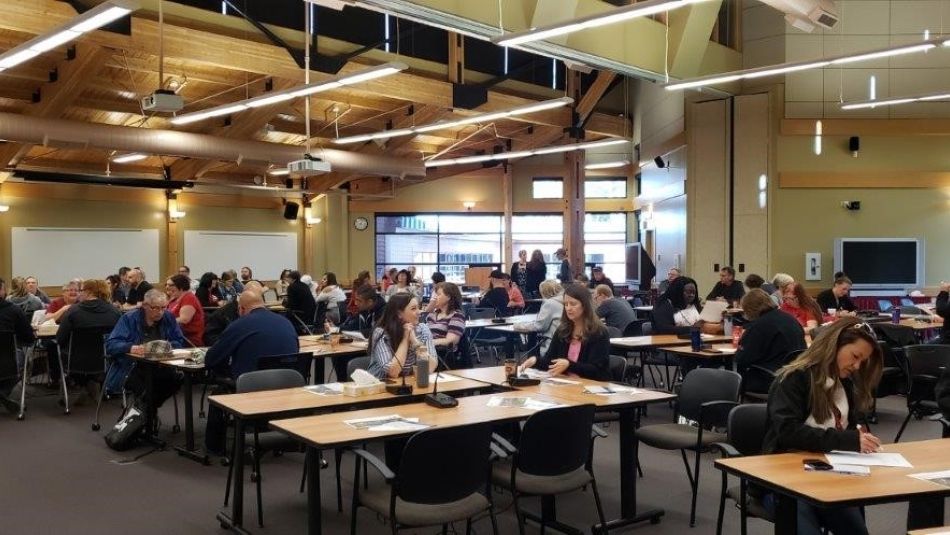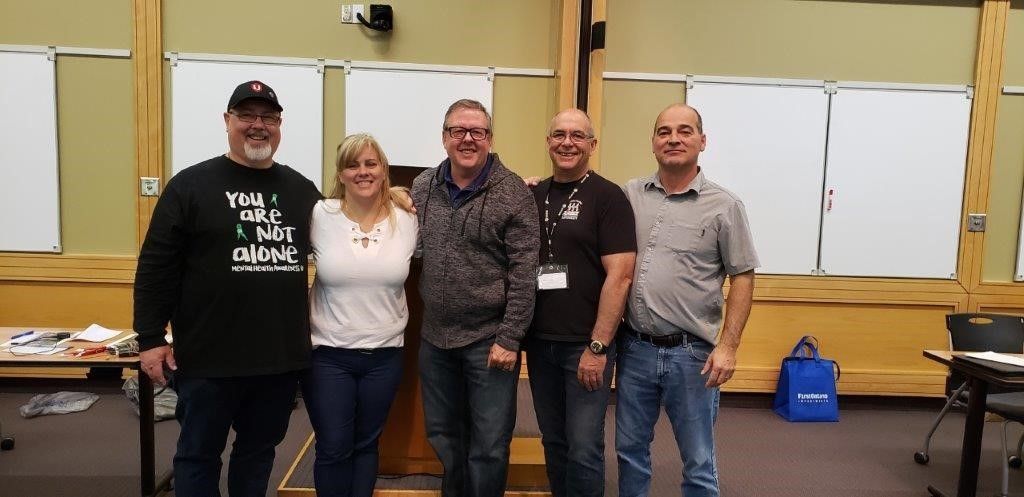
Share
Delegates gathered at the Unifor Family Education Centre in Port Elgin, Ontario between May 31 and June 2, 2019 to discuss ways to support and effectively represent members who are struggling with mental illness or addiction.
The Unifor Employee & Family Assistance Program (EFAP) & Addictions conference, which takes place every two years, brought together 135 attendees from across the country including full-time EFAP representatives, health and safety representatives and local union leadership.
“The focus of the conference was about breaking the stigma around mental health and addiction issues, as well as how to get our members and their families the appropriate treatment when needed,” said Jessica Ridgwell member of the Ontario Regional Council (ORC) EFAP Committee.
Participants were invited to attend a new full-day course piloted by the education department, called Mental Health Matters, which provided a foundation for understanding mental illness and gave them guidance on referring members to appropriate services. The course also explained the duty to accommodate people with mental illness and addiction, and set out the rights and responsibilities of the employer, the union and the worker. In addition, there was a discussion on how to improve collective agreement language to support our members in these situations.
Other courses included How to Work with People in 12 Step Recovery, Transforming our Workplaces into Psychologically Safe and Supportive Places and Workplace Suicide Prevention Training.
The conference was sponsored by the Ontario Regional Council EFAP with help from the EFAP committees from the Atlantic, Prairie and B.C. regions. Staff from the women’s, health and safety, human rights and research departments also attended.
“We take great pride in our initiatives to address mental health and addiction issues,” said Jeff Ramackers, chairperson of the ORC EFAP Committee. “By bringing together experts from the mental health field and resources within our own union in this way, we are better equipped to help members who are struggling feel like they are not alone.”



